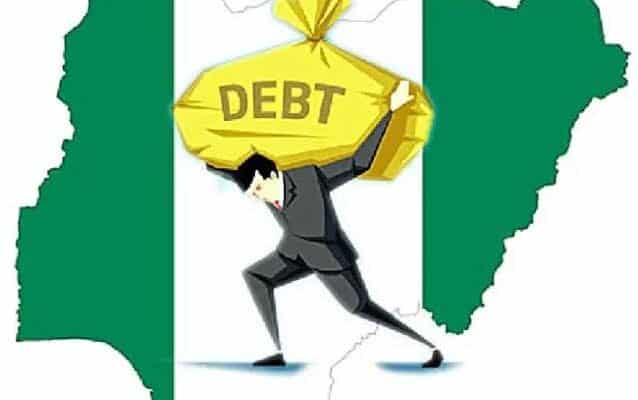Nigerians have expressed mixed reactions following the Senate’s approval of President Bola Ahmed Tinubu’s fresh external borrowing plan totaling over $21 billion for the 2025–2026 fiscal cycle. The loan, which forms a critical part of the 2025 Appropriation Act, is expected to support infrastructure projects and key economic initiatives, according to the federal government.
The new borrowing package includes $21.19 billion in direct foreign loans, €4 billion, ¥15 billion, a $65 million grant, and domestic borrowing through government bonds, collectively amounting to approximately ₦757 billion.
However, the development has sparked widespread concerns over the country’s rising debt profile. According to the Debt Management Office (DMO), Nigeria’s total public debt stood at ₦144.67 trillion ($94.23 billion) as of December 31, 2024 — a 48.58% increase from ₦97.34 trillion ($108.23 billion) recorded at the end of 2023. The report also noted a 1.65% quarter-on-quarter rise from the ₦142.32 trillion ($88.89 billion) recorded in September 2024.
Critics argue that the increasing reliance on debt financing is unsustainable. Reacting to the development, the 2023 Labour Party presidential candidate, Mr. Peter Obi, described the current administration’s borrowing trend as reckless and lacking transparency.
“With our pre-rebased GDP at about ₦269.2 trillion (roughly $180 billion), the government has borrowed the equivalent of nearly 70% of that figure. Even with the rebased GDP of ₦372.8 trillion ($243.7 billion), the new debt represents over 50% — the highest debt-to-GDP ratio in our history,” Obi stated.
Echoing similar concerns, the African Democratic Congress (ADC) condemned the move, labeling it as “fiscal vandalism.” The party accused President Tinubu’s administration of surpassing the borrowing record of his predecessor, the late Muhammadu Buhari, within just two years in office.
“What Nigerians are witnessing, following the approval of a fresh $21 billion in loans, is a calculated decision to mortgage the country’s future to mask present governance failures. If this trend continues, Nigeria’s debt could surpass ₦200 trillion before the end of 2025,” the ADC warned.
In contrast, some financial experts have called for a more nuanced view. Gbolade Idakolo, CEO of SD & D Capital Management, argued that borrowing is not inherently negative if tied to productive, revenue-generating infrastructure.
“I am not against borrowing per se, provided it is channeled into infrastructure projects that can drive economic growth and generate returns for debt repayment,” Idakolo said in an interview with Daily Post.
He noted that past administrations often failed to apply borrowed funds effectively, executing projects at inflated costs that lacked the capacity for self-repayment. Idakolo urged the National Assembly to ensure a rigorous review of loan utilization and project viability before approving such massive borrowing plans.
“For Nigeria to achieve sustainable economic growth, loans must be targeted at projects that can boost productivity and repay themselves over time. If this administration follows the same path as its predecessors — borrowing without a clear repayment strategy — we risk further economic instability,” he added.
As the debate continues, citizens and stakeholders alike are calling for greater accountability, transparency, and fiscal responsibility from the federal government to ensure that the nation’s future is not mortgaged in the pursuit of short-term goals.

Comments